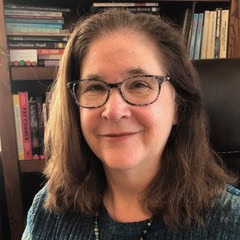Catherine Ambrose, MSS, LCSW
Catherine Ambrose, MSS, LCSW
catherineambrose@temenoscenter.com
856-722-9043, ext. 1
Catherine is a founding partner of the Temenos Center, where she has worked with individuals, couples, and families to facilitate change, growth, and healing since 2001.
She received her MSS from Bryn Mawr School of Social Work and Social Research in 1993. She was a counselor at The University of the Arts in 1993-1994 and on the staff of the Renfrew Center, a national leader in the treatment of women with eating disorders and other mental health problems, from 1994-2001. She was Assistant Clinical Supervisor in the Outpatient Department at Renfrew from 1997-1999.
Relationships are at the heart of Catherine’s work. She works with individuals struggling with disordered eating, post-traumatic stress, relationship problems, grief, depression, and anxiety, but whatever the issue, she believes the therapy relationship is central to healing. She tries to offer her clients an experience of being heard in a non-judgmental and thoughtful way and that therapy is a co-created, interactive process. She believes it is important to create an experience of interpersonal safety, and that this step of creating safety is both a beginning and end in itself in a successful therapy experience. She looks forward to knowing her clients deeply and compassionately.
Catherine is a perpetual student and always on the lookout for training and programs that will enhance her skills. Her interest in writing and in the connections between creativity and healing led her to New Directions, a 3-year program combining the study of psychoanalysis and writing at the Washington Center for Psychoanalysis, which she completed in 2010. She also participated in several semesters of seminars focused on various aspects of Object Relations theory and therapy.
More recently (2024), Catherine graduated from the psychoanalytic psychotherapy program at the Institute for Relational Psychoanalysis of Philadelphia (IRPP). She added two academic years of study to the two years required for completion of the program. This training and study further informed and enriched Catherine’s relational approach to her work.




